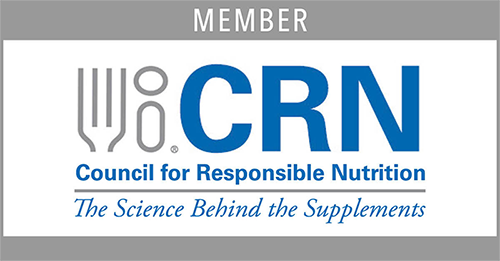What is It?*
Source Type: Water-soluble vitamin
Source(s):
- Naturally found in animal foods (poultry, beef, pork, fish)
- Naturally found in plant foods (nuts, legumes, grains)
- Fortified foods (breads, cereals, flour)
- Chemically synthesized in labs
Niacin, also called vitamin B3, is a water-soluble vitamin and part of the B-complex family. It plays a major role in energy metabolism by converting carbohydrates, fats, and proteins into energy. Niacin aids in digestion, nervous system function, and overall skin health. Niacin is also a key component of the molecule, NAD (nicotinamide adenine dinucleotide), which is important for the production of the neurotransmitter, dopamine. The two main forms of niacin found in dietary supplements are nicotinic acid and nicotinamide.
Benefits*
Like other B vitamins, niacin plays a role in energy metabolism by converting the foods we eat into energy that the body can use. Niacin has also been used to help manage cholesterol levels, promote cardiovascular health, support cognitive well-being, and improve skin health.
Effectiveness*
Numerous studies support the supplementation of niacin to treat niacin deficiency and the rare condition pellagra, which causes diarrhea, dermatitis, and dementia, and, if untreated, can be fatal.
Scientists have found that large doses of niacin in the form of nicotinic acid are effective at reducing the risk of heart attack and stroke in people with atherosclerosis. They also found that prescription-strength nicotinic acid (more than 100 times the RDA) can lower levels of LDL (the bad cholesterol) and lower triglyceride levels. However, experts do not recommend taking high doses of nicotinic acid if you are already taking statin medications.
Numerous studies have shown that nicotinamide has cognitive-protective properties, which can decrease neuroinflammation and enhance neurocognitive function.
Other studies show that topical niacinamide can provide anti-inflammatory effects on the skin and treat acne and rosacea.
Risks*
Dietary supplements with more than 30 mg of nicotinic acid can result in adverse effects. Some of these include burning and itching of the face, chest, and arms, as well as headaches, rashes, and dizziness. Although high-dose nicotinic acid supplements are sometimes prescribed for the treatment of high cholesterol, long-term treatment may cause hepatitis and liver failure. Patients are advised to discuss the risks and benefits with their practitioner before starting treatment. Niacin in the form of nicotinamide tends to have fewer side effects than nicotinic acid. However, very high doses of nicotinamide can cause diarrhea and increase bleeding from wounds.



